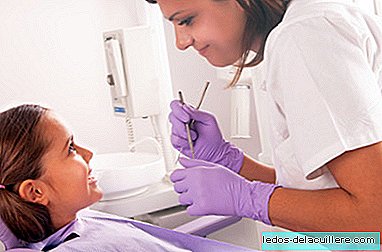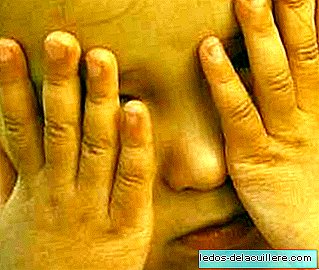
How long have you not taken your child to the dentist? Do you drink sugary juices frequently? How many times do you brush your teeth a day? These are some questions that parents should worry about if we want to take proper care of our children's oral health.
According to data from the 2015 National Health Survey, suffering from tooth decay in childhood already reaches 32% among children aged five and six. Very high figures and which, however, could be reduced with good prevention. Other problems can affect teeth and gums, but What are the keys to take care of the mouths of the little ones?
We are the parents who have to be with the children to teach them to brush their teeth correctly and establish good oral hygiene habits, because what they learn in their early years will be what they do later. Also, let's not forget to take the children to a pediatric dentist review before the second year in case there are problems not detected.
The College of Dentists of Córdoba develops the following tips for children to take care of their oral health:
- Toothpaste: the dentist can help choose the most suitable for children between zero and two years. If there are no teeth, you can gently rub the gum with a damp cloth or cloth or special brush. After two years, a toothpaste with an adequate concentration of fluoride will be chosen, that is, specific for its age. Recall that the SEOP (Spanish Society of Pediatric Dentistry) recommends fluoride in a concentration of 500ppm between six months and two years and up to six years with a concentration between 1000 and 1450 ppm of fluoride.
- Amount of pasta: similar to the size of a pea after two years, before smaller.
- Supervision: it is very important to monitor children's brushing, making sure they reach all mouth spaces. Accompany them in brushing at least up to seven years.

- Frequency: before bedtime brushing is the most important, but it is recommended to do it at least three times a day to eliminate food debris and prevent cavities.
- Visits to the dentist: from the second year of life, at least once a year.
- The first visit: it can be done when your teeth come out and aims to detect and prevent pathologies, early caries or other anomalies and will mark future behavior.
- Fear: it is important to explain what the visit will consist of. In any case, if we carry it from an early age, they will become familiar with the office and dentist environment.
- Sugar: WHO recommends not taking more than five teaspoons a day including those of industrial products.
- Labeling: "low sugar" or "no added sugar" labels do not mean that they do not carry sugar.
- Lunch and snack: the best options are fruit, vegetables, yogurt, cheese or bread. To more fruit and vegetables, longer and healthier lives.
- Hydration: water or milk are the healthiest drinks for teeth.
Recall that the earlier oral hygiene begins, the less likely the child is to develop cavities and periodontal diseases. We hope you are eleven keys to take care of the mouths of the little ones be useful for your teeth to be healthier and save us unnecessary interventions!
Photos | iStock
Via | Cordoba Dentists College
In Babies and more | Frequently asked questions about children and orthodontics (or what happens when teeth get messy), Nine habits that can harm the child's oral health












